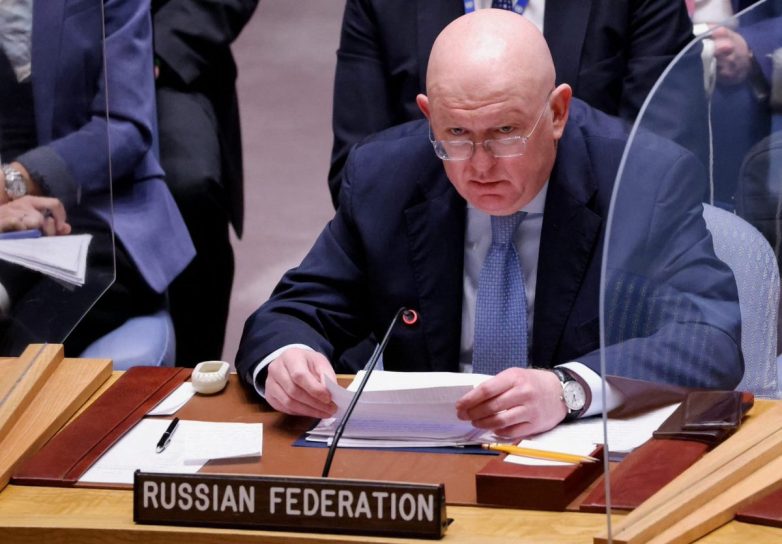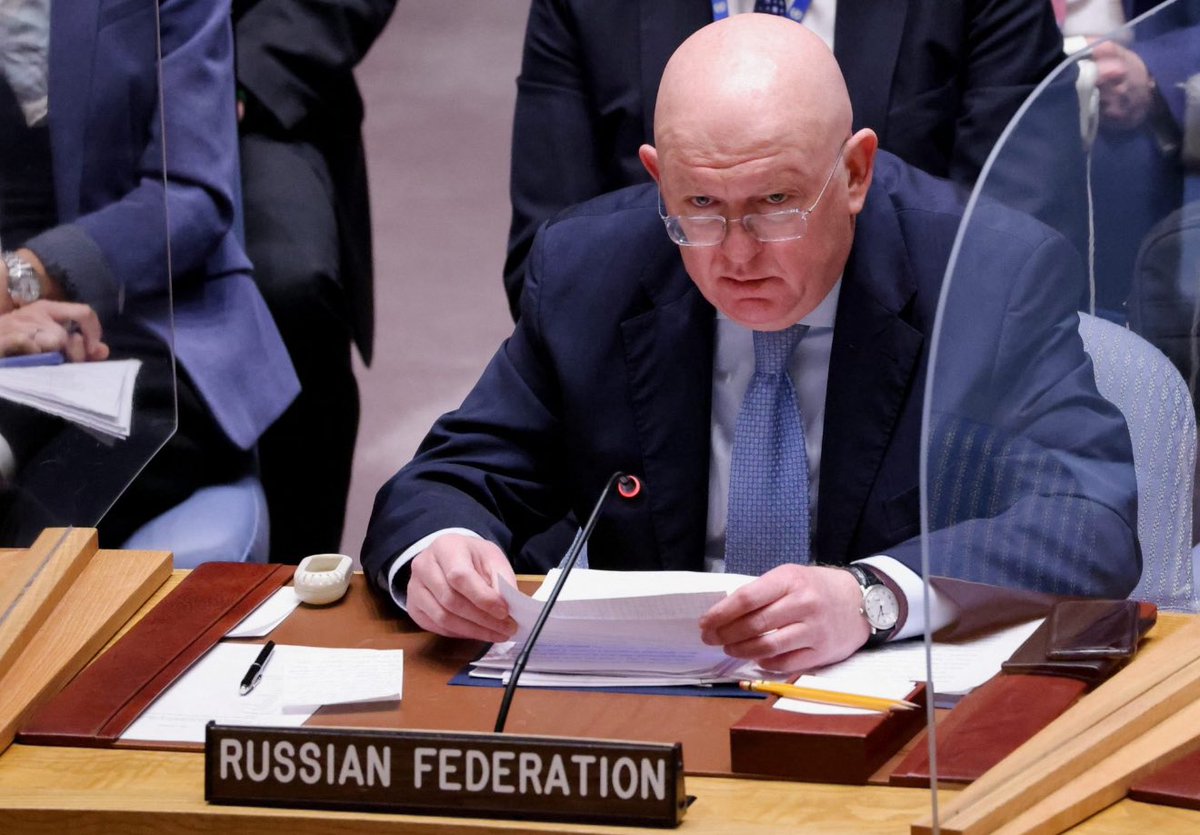
“Russia Calls Out Israel at UN: ‘Hypocrisy Over NPT Participation!'”
Israel UN Security Council, Russia NPT statement, Middle East diplomatic tensions
Russia’s Critique of Israel at the UN Security Council: A Call for Accountability
On June 24, 2025, a significant moment unfolded at the United Nations Security Council (UNSC) when Russia openly criticized Israel’s participation in discussions, emphasizing the latter’s non-signatory status to the Treaty on the Non-Proliferation of Nuclear Weapons (NPT). This incident sparked widespread conversation about international diplomacy, nuclear disarmament, and the complexities of geopolitical relationships.
Understanding the NPT and Its Significance
The Treaty on the Non-Proliferation of Nuclear Weapons, established in 1968, aims to prevent the spread of nuclear weapons and promote peaceful uses of nuclear energy. It has three main pillars: non-proliferation, disarmament, and the right to peacefully use nuclear technology. Countries that sign the treaty commit to refraining from acquiring nuclear weapons and agree to pursue negotiations in good faith towards nuclear disarmament. As of now, Israel has not signed the NPT, leading to ongoing debates regarding its nuclear capabilities and regional security.
Russia’s Statement: An Inquiry into Hypocrisy
During the UNSC session, Russia’s representative expressed confusion and frustration over Israel’s presence, questioning how a nation that is not bound by the NPT could participate in discussions that revolve around global nuclear policies. The statement, “It is very strange to us that Israel is sitting here. Israel is not a signatory of the NPT, why are they here?! Hypocrisy!” reflects a broader sentiment that critiques the perceived double standards in international relations and nuclear governance.
This assertion by Russia raises crucial questions regarding the legitimacy of Israel’s nuclear program and the broader implications for Middle Eastern stability. Russia’s call for accountability resonates with many nations that advocate for a universal adherence to non-proliferation treaties.
The Implications of Russia’s Criticism
Russia’s remarks at the UNSC highlight significant geopolitical tensions, especially in relation to the Middle East. Israel’s nuclear capabilities have long been a contentious issue, often viewed through the lens of regional security and power dynamics. The fact that Israel remains outside of the NPT framework raises alarms among neighboring countries and global powers that advocate for a nuclear-free zone in the Middle East.
The criticism also underscores the complexity of international diplomacy, where nations may have strategic reasons for their policies that do not always align with the principles outlined by global treaties. Russia’s direct critique of Israel points to a potential shift in diplomatic relations, where countries are increasingly willing to confront perceived injustices and advocate for more stringent adherence to international norms.
Global Reactions to the Statement
The response to Russia’s statements has been varied. Some nations and organizations have echoed Russia’s sentiment, calling for a reevaluation of Israel’s nuclear strategy and a more robust dialogue about nuclear disarmament in the region. Others, however, defend Israel’s actions, citing its security concerns and the historical context of its nuclear policy.
This incident also reflects the broader geopolitical landscape, where alliances and adversities are often fluid. As countries navigate their relationships, statements made in international forums like the UNSC can have lasting implications for diplomatic ties, negotiations, and conflict resolution.
The Future of Nuclear Disarmament Efforts
The dialogue surrounding nuclear disarmament and non-proliferation is more critical than ever in today’s global context. As nations confront new security challenges, the effectiveness of treaties like the NPT is under scrutiny. Russia’s challenge to Israel’s presence in the UNSC could serve as a catalyst for renewed discussions about the necessity of universal compliance with nuclear treaties.
The international community must grapple with the complexities of national security, regional conflicts, and the pressing need for disarmament. As the world continues to evolve, the conversations sparked by this incident may pose an opportunity for countries to reexamine their commitments to non-proliferation and to confront underlying tensions that hinder progress.
Conclusion
Russia’s pointed critique of Israel during the UNSC meeting raises essential questions about accountability, international law, and the role of nuclear weapons in global security. As countries navigate their interests within the context of treaties like the NPT, it is crucial to foster dialogue that promotes transparency and adherence to international norms.
The unfolding discourse surrounding this incident not only highlights the challenges of achieving a nuclear-free world but also emphasizes the need for countries to engage in constructive discussions. In a time when geopolitical tensions are high, fostering accountability and commitment to global treaties can pave the way for a more secure future.
As the world watches the developments from the UNSC, it remains to be seen how nations will respond to the call for greater adherence to the principles of non-proliferation and disarmament. The path forward will require collaboration, understanding, and a willingness to address the nuanced realities of international diplomacy.

JUST IN: Russia at the UN Security Council:
“It is very strange to us that Israel is sitting here.
Israel is not a signatory of the NPT, why are they here?!
Hypocrisy!” pic.twitter.com/uNs0ufJVHM
— Sulaiman Ahmed (@ShaykhSulaiman) June 24, 2025
Russia at the UN Security Council: A Strong Statement on Israel
In recent discussions at the United Nations Security Council, Russia has made headlines with a bold statement questioning Israel’s presence. The comment, “It is very strange to us that Israel is sitting here. Israel is not a signatory of the NPT, why are they here?! Hypocrisy!” raises significant questions about international relations and the complexities surrounding nuclear policies. This article delves into the implications of this statement, the context of the Non-Proliferation Treaty (NPT), and the ongoing geopolitical tensions in the region.
The Non-Proliferation Treaty: What You Need to Know
The Non-Proliferation Treaty (NPT) is a landmark international treaty aimed at preventing the spread of nuclear weapons and promoting peaceful uses of nuclear energy. Opened for signature in 1968, it has been signed by 191 parties, including the five recognized nuclear-armed states: the United States, Russia, China, France, and the United Kingdom. However, Israel is notably absent from this list, opting not to sign the treaty. This has led to longstanding debates about its implications for regional and global security.
Israel’s Nuclear Policy
Israel’s decision not to sign the NPT is a calculated move rooted in its national security strategy. Although Israel maintains a policy of ambiguity regarding its nuclear arsenal, it is widely believed to possess nuclear weapons. This strategic ambiguity is designed to deter potential adversaries while avoiding the political fallout of officially admitting such capabilities. The international community, however, often views Israel’s stance as contradictory, particularly when it comes to discussions on nuclear disarmament.
The Context of Russia’s Statement
Russia’s pointed remark at the UN Security Council is not merely a critique of Israel’s participation; it reflects a broader context of geopolitical tensions. As the world grapples with issues like nuclear proliferation and security, countries like Russia and Israel often find themselves on opposite sides of the spectrum. Russia, as a signatory of the NPT, holds a different perspective on nuclear weapons and their regulation, making its criticism of Israel’s non-signatory status particularly poignant.
The Geopolitical Landscape
The Middle East has been a hotbed of geopolitical conflicts, with Israel’s relationships with its neighbors being especially strained. The ongoing Israeli-Palestinian conflict, Iran’s nuclear ambitions, and the role of various international actors contribute to a complex landscape where nuclear issues are interwoven with political, social, and economic factors. Russia’s assertion highlights its position as a key player in these discussions, advocating for a more comprehensive approach to nuclear disarmament and regional security.
Why Does This Matter?
Russia’s statement at the UN Security Council is significant for several reasons. First, it underscores the hypocrisy perceived by many in the international community regarding nuclear policies. When a nation like Israel, which is believed to possess nuclear weapons, participates in discussions about nuclear non-proliferation, it raises questions about fairness and accountability.
Impact on International Relations
The ramifications of this discourse extend beyond the immediate context of the UN Security Council. It can influence diplomatic relations between countries, impact negotiations related to nuclear agreements, and shape public perception regarding nuclear weapons. As nations navigate these complex issues, statements like Russia’s serve as reminders of the intricacies involved in international diplomacy.
The Response from Israel and Its Allies
In response to Russia’s remarks, Israeli officials have often emphasized their commitment to regional stability and security. They argue that their nuclear capabilities serve as a deterrent against existential threats in a volatile region. Moreover, Israel’s allies, particularly the United States, tend to support its right to self-defense while advocating for broader non-proliferation efforts.
The Role of the United States
The U.S. has historically been a staunch ally of Israel, often defending its policies on the international stage. The U.S. perspective on Israel’s nuclear status is nuanced, balancing its support for Israel’s security with its commitments to non-proliferation. As discussions continue at platforms like the UN Security Council, the U.S.’s stance will undoubtedly play a crucial role in shaping outcomes.
Public Perception and Media Coverage
Media coverage of these events often amplifies the narratives surrounding nuclear issues. Reports and opinions can sway public perception, influencing how citizens view the actions of their governments and international bodies. In a world where information travels at lightning speed, social media platforms can also play a pivotal role in shaping these discussions.
The Power of Social Media
Platforms like Twitter have become essential tools for disseminating information and opinions. The tweet by Sulaiman Ahmed, which highlighted Russia’s statement, reflects how social media can bring attention to crucial geopolitical discussions. As users share and comment on such statements, they contribute to a larger conversation about international relations and nuclear policy.
Looking Ahead: The Future of Nuclear Non-Proliferation
As we move forward, the dialogue surrounding nuclear non-proliferation will continue to evolve. The international community will need to address the complexities of nations like Israel that choose not to participate in treaties like the NPT. Whether through diplomatic channels, multilateral negotiations, or grassroots movements advocating for disarmament, the pursuit of nuclear stability remains a pressing concern.
The Need for Comprehensive Solutions
To achieve meaningful progress, it is imperative that countries engage in open and honest discussions about their nuclear capabilities and security concerns. Building trust among nations is vital for any effective non-proliferation strategy. As the Russian statement exemplifies, addressing perceived hypocrisies and fostering transparency can pave the way for a more secure future.
Conclusion: A Call for Dialogue
Russia’s remarks at the UN Security Council serve as a critical reminder of the complexities surrounding nuclear issues and international relations. As the world grapples with these challenges, it is essential for nations to engage in constructive dialogue aimed at promoting security and stability. By addressing the underlying issues at play, we can work towards a more peaceful and non-proliferative world.
JUST IN: Russia at the UN Security Council: “It is very strange to us that Israel is sitting here. Israel is not a signatory of the NPT, why are they here?! Hypocrisy!”